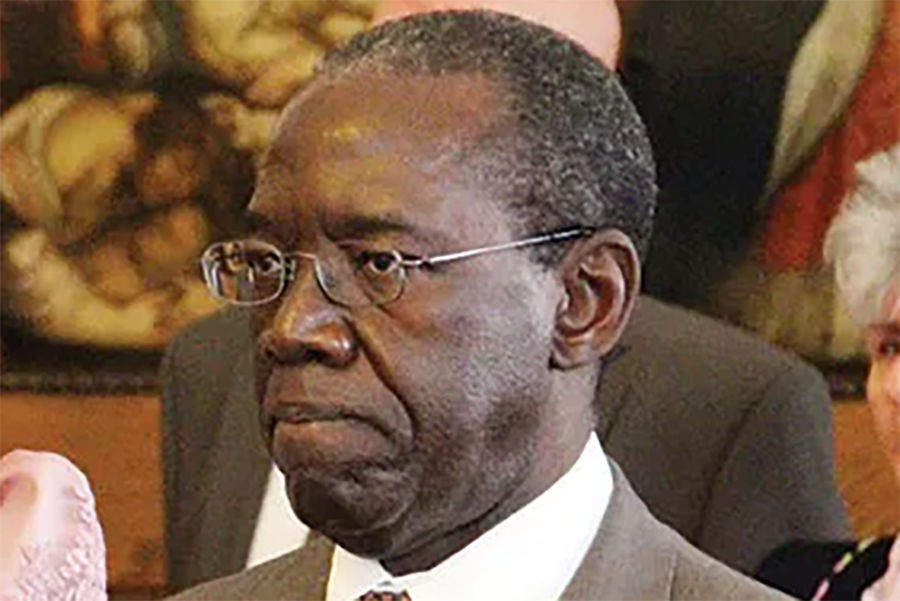Court of Appeal Strips Tycoon Mohan Kiwanuka of Business Control Over Mental Health Concerns

The Court of Appeal has stripped city tycoon Mohan Musisi Kiwanuka of his managerial powers over a vast business empire, citing mental illness as the overriding factor behind its latest decision.
The ruling, delivered this week, marked a turning point in a years-long legal and familial battle over the control of the ageing entrepreneur’s fortune, effectively handing temporary authority to his son, Jordan Sebuliba Kiwanuka.
The appellate court's decision reversed an earlier High Court ruling that had allowed the 83-year-old businessman to retain control despite mounting concerns about his mental fitness.
In its new position, the Court directed Jordan to manage all affairs of the business empire for a 30-day interim period and to organise a family meeting with his siblings to chart a collaborative future.
“This temporary arrangement is intended to allow the family time to create a unified and sustainable structure for running their businesses,” the court stated.
“Given the medical evidence presented, the appellant [Jordan Sebuliba Kiwanuka] has demonstrated sufficient grounds for concern regarding Mr Kiwanuka’s mental capacity.”
The decision is the latest chapter in a high-stakes saga that has seen the Kiwanuka family embroiled in court battles and media scrutiny since at least 2019, when Jordan first filed a petition questioning his father’s cognitive health.
The business empire in contention includes 32 companies and more than 46 prime properties in Kololo, Nakasero, and other parts of the Kampala metropolitan area.
Kiwanuka, the CEO of Oscar Industries Ltd, has long been a towering figure in Uganda’s business landscape, with interests spanning real estate, energy, and hospitality.
The appellate ruling builds on a February 2025 High Court order that resolved the central question of Kiwanuka’s mental state.
On February 12, a registrar at the High Court ruled the tycoon mentally unstable, following a critical admission by his longtime lawyer and company secretary, Francis Buwule, who told the Court of Appeal: “During the said hearing, counsel for Mr Kiwanuka admitted he is insane.”
This admission marked a dramatic shift in a saga where members of Kiwanuka’s family, including his children from two marriages and siblings, had previously clashed in court over access to him and over control of the businesses.
The February ruling allowed his children, some of whom had previously been excluded from family affairs, immediate access to their father.
Court documents reveal that Jordan, his sisters, and paternal aunts had accused Kiwanuka’s wife, former Finance Minister Maria Kiwanuka, and her son Edin Musisi of using powers of attorney to unilaterally transfer or sell family properties.
They argued this was being done while the tycoon was no longer of sound mind and incapable of making informed decisions.
Justice Flavian Zeija, then Principal Judge, played a pivotal role in unravelling the earlier ruling by Justice Musa Ssekaana in 2019, which had upheld Kiwanuka’s mental competence.
In a January 31 decision, Zeija - who has since taken over as Deputy Chief Justice - ruled that mental capacity is not fixed and can deteriorate, a finding supported by new medical evidence and corroborated by the family’s treating physicians.
Dr Simon Sekiganda Luzige, who has treated Kiwanuka since 2014, described a troubling decline in the tycoon’s behaviour.
“Over time, he became increasingly forgetful and exhibited a significant personality change,” he said in his affidavit.
Geriatrician Dr Harriet Nankabirwa echoed those concerns, stating that she had initiated discussions with Kiwanuka about appointing trustees to manage his affairs.
The February ruling set aside the earlier dismissal of Miscellaneous Cause No. 82 of 2023, citing that it could not be barred by the legal doctrine of res judicata, which prevents re-litigation of decided matters.
Justice Zeija clarified that the emerging medical evidence and admissions by Kiwanuka’s own legal team justified a full re-examination of his mental capacity.
“The issue is whether the earlier case, No. 249 of 2019, can bar these proceedings. However, the new evidence establishes that the respondent’s mental condition has deteriorated since that ruling,” he stated.
“Mental status is a condition that can change rapidly. Someone who is sane today may be insane tomorrow.”
Kiwanuka had initially been summoned to appear in court personally on February 11.
However, the family avoided further spectacle by admitting to the mental decline and consenting to the High Court’s ruling.
In this week’s Court of Appeal decision, the legal wrangling appears to be giving way to a potential consensus among Kiwanuka’s children—if they can use the 30-day period to agree on a shared plan.
Legal observers say this marks a crucial opportunity for the family to finally set aside their internal rivalries and forge a path forward in managing one of Uganda’s most prominent privately held business portfolios.
Still, uncertainty looms. The court did not rule out further proceedings, indicating that a more permanent arrangement could be formalised depending on the outcome of family consultations and any motions filed thereafter.
With the patriarch’s declining health no longer in dispute, all eyes are now on the Kiwanuka children to see whether they can rise to the occasion and steward the legacy left behind by a man once seen as indomitable in Uganda’s entrepreneurial circles.



0 Comments